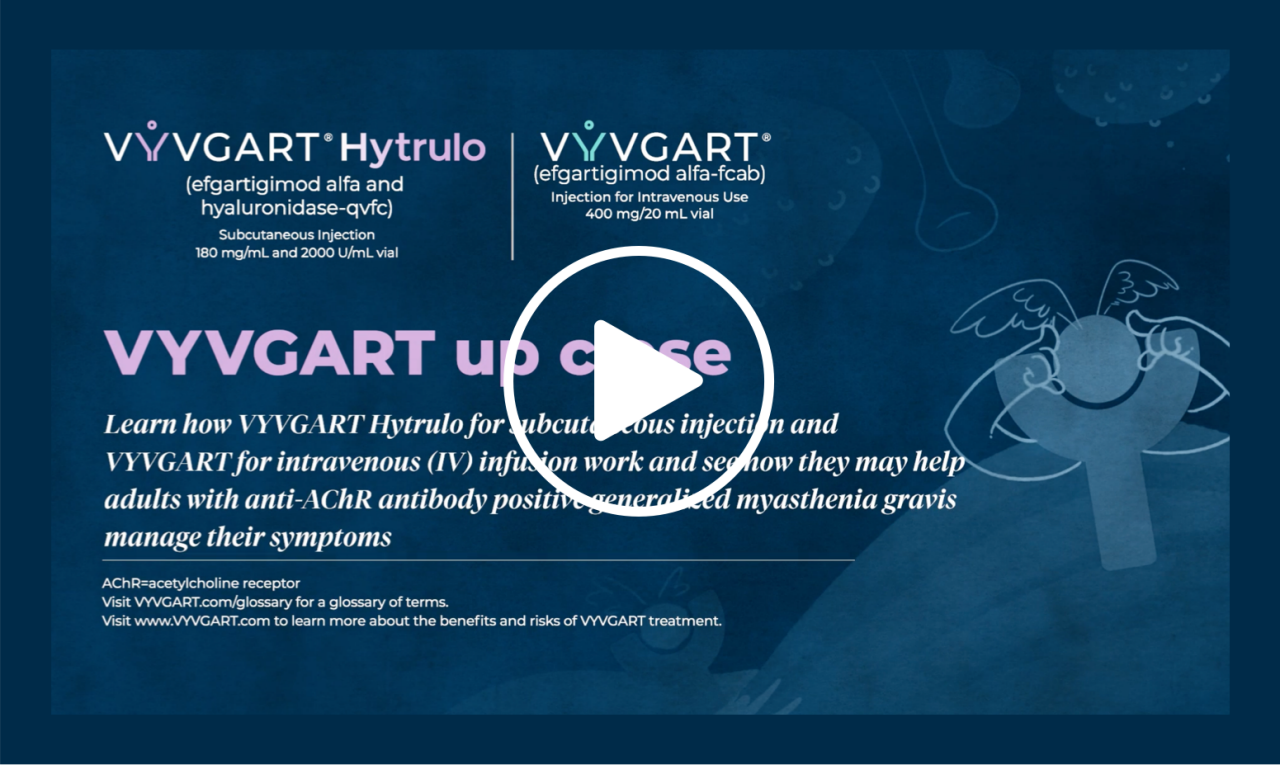In the VYVGART Hytrulo study, the most common side effects of VYVGART Hytrulo-treated patients were injection site reactions, 38% (21 of 55), and headache. Injection site reactions included injection site rash, redness of the skin, itching sensation, bruising, pain, and hives.
In the VYVGART Hytrulo study and its long-term safety study:
- All injection site reactions were mild to moderate and didn’t lead to treatment discontinuation
- The majority of injection site reactions occurred within 24 hours of injection and resolved on their own
- The majority of injection site reactions occurred during the first treatment cycle and decreased with each subsequent cycle
VYVGART Hytrulo can cause allergic reactions such as rash, swelling of the face, lips, throat, or tongue, shortness of breath, and hives. It can also increase the risk of serious allergic reactions such as trouble breathing, low blood pressure, and fainting, as well as infusion or injection-related reactions including high blood pressure, chills, shivering, and chest, stomach, or back pain. These reactions can happen during, shortly after, or weeks after treatment and can cause doctors to pause or, in some cases, stop treatment.













